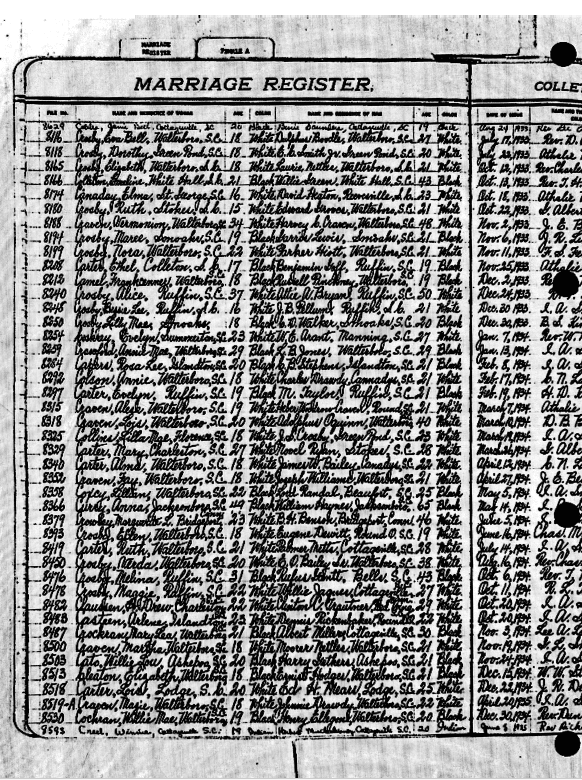The Edisto Natchez-Kusso Tribe of South Carolina is in the process of creating an official archive of the Tribe’s historical, archaeological, and cultural records and plans to share these materials with Tribal members and the general public through exhibits, an opening ceremony, and a series of lectures. The archival process is currently ongoing. SC Humanities supported this project with a Major Grant.
The “Preserving the Native South” project was crafted to support the Edisto Natchez-Kusso Tribe’s Tribal Historical Committee (THC) and work towards organizing and developing an archive and digital archival record. The project has included assessing the current archival materials that the Tribe has; these materials include photographs, correspondence between Tribal leaders and other organizations, and historical research completed by a variety of academics and authors. Project leaders have made archive trips to University of South Carolina Lancaster, the South Carolina Department of Archives and History, and South Carolina Historical Society Reading Room at the College of Charleston. These trips focused on locating archival materials that mention or focus on the Edisto Natchez-Kusso Tribe, specifically records from 1900 to 1960.
There are very few records from 1900-1960 of Native American communities in the Southeast, including the Edisto Natchez-Kusso Tribe, because native communities would have been experiencing the impacts of Reconstruction and Jim Crow. For many people, it was not safe to publicly identify as Native American. Others did publicly identify as Native American, but their identity was not always recorded as such, meaning that the people who created records opted to designate Native Americans as white or black, and so very few marriage certificates, death certificates, birth certificates, draft papers, and school records list known Edisto Natchez-Kusso community members as Native American.
At the South Carolina Department of Archives and History, project leaders reviewed hundreds of marriage records and identified a handful of known community names (surnames that are common among Edisto Natchez-Kusso Tribal Members), and of those records they located only one that noted the married couple’s identity as ‘Indian.’ Project Director Kit Kelly said, “We knew about this record before our visit, but being able to locate it at the archives and create a scan to be added to the Tribe’s archive was exciting. We sorted through hundreds of marriage records, searching for common community surnames and it was frustrating to see the sheer number of records that mis-identified Tribal community members, and so seeing a couple who publicly identified themselves as ‘Indian’, and for that identification to be actually recorded in the marriage records, was pretty remarkable.”
The Edisto Natchez-Kusso Tribe has a new headquarters building in Ridgeville, the Robert Davidson Building, and they are in the process of setting up the archive space there, where the materials and the history attached to them will have a dedicated space to be seen, interpreted, and discussed. The building is named after Chief Robert Davidson, who served as Chief from 1969 to 1982. More information about the Edisto Natchez-Kusso Tribe can be found on their website: https://www.natchezkussotribeofscedisto.website/.
The mission of SC Humanities is to enrich the cultural and intellectual lives of all South Carolinians. Established in 1973, this 501(c)3 organization is governed by a volunteer Board of Directors comprised of community leaders from throughout the state. It presents and supports literary initiatives, lectures, exhibits, festivals, publications, oral history projects, videos, and other humanities-based experiences that directly or indirectly reach more than 250,000 citizens annually. South Carolina Humanities receives funding from the National Endowment for the Humanities as well as corporate, foundation and individual donors. The National Endowment for the Humanities: Democracy demands wisdom.
